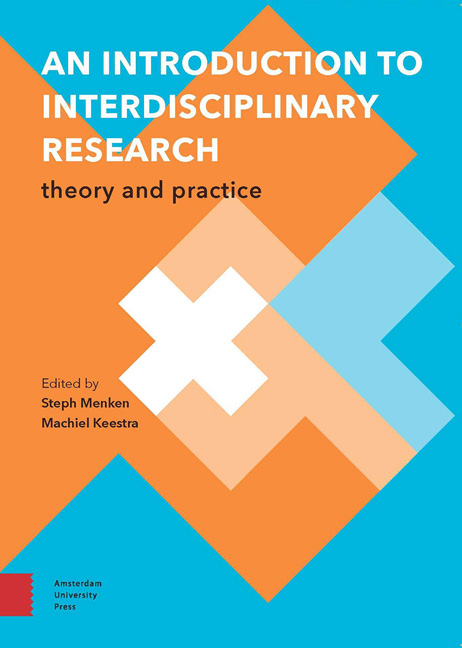Book contents
- Frontmatter
- Contents
- Acknowledgements
- Preface
- Part 1 The Handbook - ‘The What’
- 1 Introduction
- 2 What is Science? A Brief Philosophy of Science
- 3 The Disciplines
- 4 Interdisciplinarity
- 5 Complexity: The Main Driving Force Behind Interdisciplinarity
- 6 Interdisciplinary Integration
- Part 2 The Manual - ‘The How’
- 7 The Interdisciplinary Research Process
- 8 The Problem
- 9 Theoretical Framework and Research Question
- 10 How to Collect and Analyze your Data
- 11 Discussion and Conclusion(s)
- Part 3 Interdisciplinary Research in Practice
- 12 Interdisciplinary Research Example: Fogponics
- 13 Interdisciplinary Careers
- Further Reading
- References
- Colophon
13 - Interdisciplinary Careers
- Frontmatter
- Contents
- Acknowledgements
- Preface
- Part 1 The Handbook - ‘The What’
- 1 Introduction
- 2 What is Science? A Brief Philosophy of Science
- 3 The Disciplines
- 4 Interdisciplinarity
- 5 Complexity: The Main Driving Force Behind Interdisciplinarity
- 6 Interdisciplinary Integration
- Part 2 The Manual - ‘The How’
- 7 The Interdisciplinary Research Process
- 8 The Problem
- 9 Theoretical Framework and Research Question
- 10 How to Collect and Analyze your Data
- 11 Discussion and Conclusion(s)
- Part 3 Interdisciplinary Research in Practice
- 12 Interdisciplinary Research Example: Fogponics
- 13 Interdisciplinary Careers
- Further Reading
- References
- Colophon
Summary
In the previous chapters we discussed what interdisciplinary research entails, when it can be applied, and why it should be applied. We have seen throughout that interdisciplinary research is – more so than disciplinary research – by its very nature determined by the particular research questions and context. This also affects the background, careers and activities of interdisciplinarians themselves. Indeed, by looking at the biographies and statements of a few interdisciplinarians you may recognize this context dependence as well as the pluralism in terms of scientific contents and methods that are challenging and inspiring them.
The first example represents the relatively large group of interdisciplinarians with a background in two different disciplines, allowing them to critically consider the questions, contents, and methods of each discipline in itself and the assumptions that are underlying them.
“One has to find a language that is understandable to all the groups you acquired information from”
Prof. dr. Trudy Dehue
Professor at the University of Groningen
Trudy Dehue was first trained as a psychologist and then as a philosopher of science at the University of Groningen. In her transdisciplinary and interdisciplinary research, she focuses on psychology and psychiatry. She has written three books, Changing the Rules, De Depressie-epidemie (The Depression Epidemic), and Betere Mensen (Better People).
How did I get involved in interdisciplinary research? I guess it was my curiosity and a deep awareness that people always argue from particular perspectives. Historically speaking, the explanation might be that my parents hardly ever agreed on anything. My mother's story about an event was usually completely different from my father's version of the same event and as a child I soon discovered they were both right in a way.
When I was in my twenties, I got my first job, which was at a children's psychiatric clinic. There, the problems of a child, his or her family, and the larger context were viewed from all kinds of perspectives. This job made me want to understand more about psychological issues. Hence, I went to the university and graduated in psychology and philosophy. I was always trying to compare and, if possible, combine divergent points of view. It is like a habit for me to look for other perspectives, try to weigh them and make a coherent new story out of them.
- Type
- Chapter
- Information
- An Introduction to Interdisciplinary ResearchTheory and Practice, pp. 110 - 118Publisher: Amsterdam University PressPrint publication year: 2016



